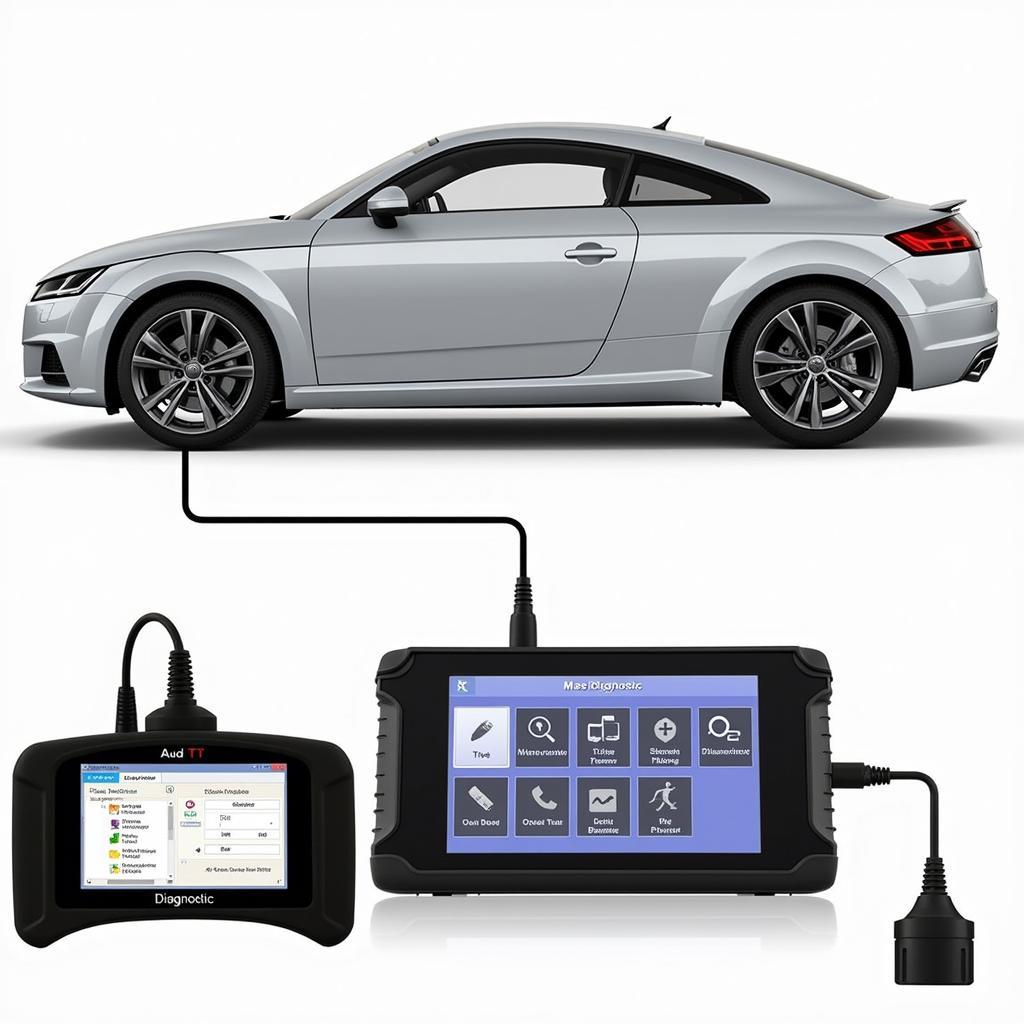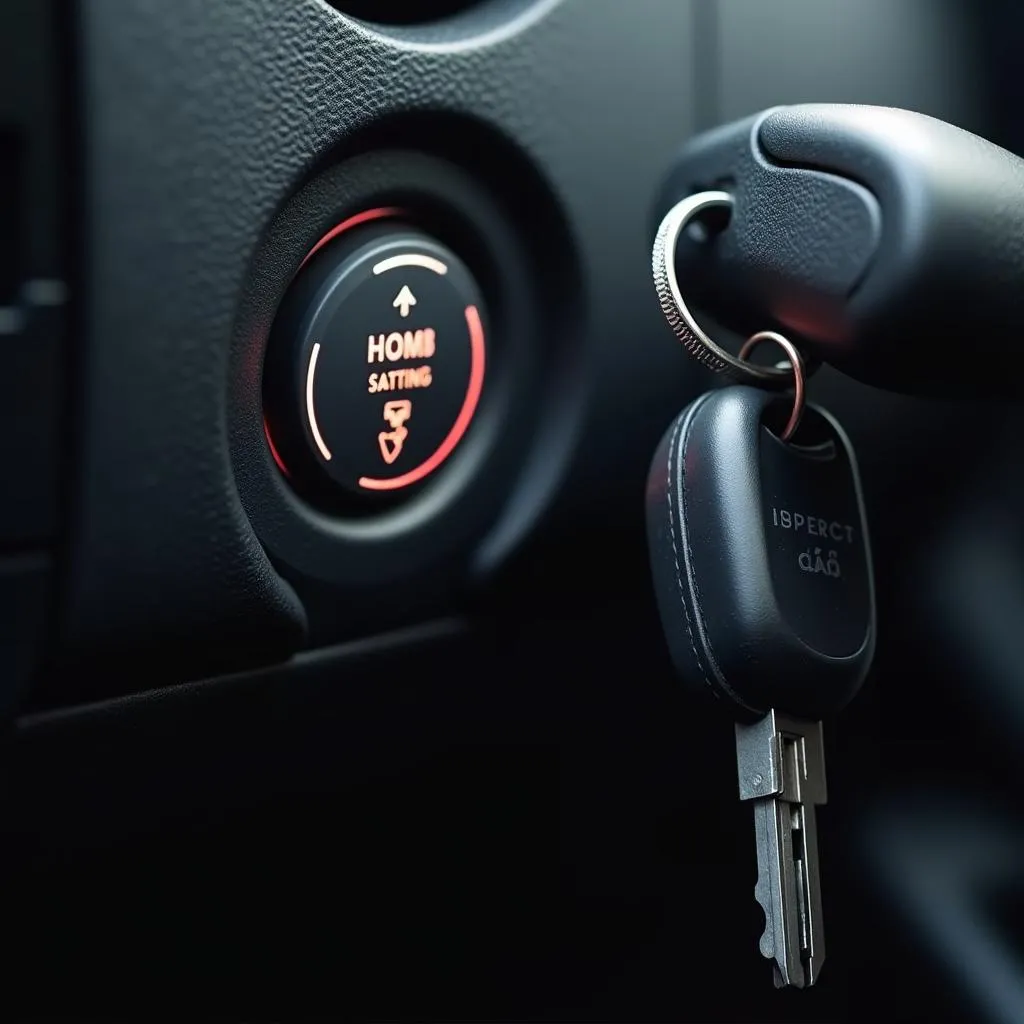The dreaded brake pad warning light on your Mercedes GLK dashboard – a sure sign that it’s time to address your braking system. But what exactly does it mean, and how should you proceed? This article covers everything you need to know about the Mercedes GLK brake pad warning light, from potential causes to step-by-step solutions.
Understanding Your Mercedes GLK Brake System
Your Mercedes GLK utilizes a sophisticated braking system designed for optimal safety and performance. At the heart of this system are brake pads, crucial components that create the friction needed to stop your vehicle.
Over time, brake pads wear down naturally with use. The brake pad warning light is your car’s way of telling you that the pads have thinned to a point where they need replacing to maintain optimal braking performance and safety.
Possible Causes for the Brake Pad Warning Light
While worn brake pads are the most common reason for the warning light, other factors can trigger it:
- Worn Brake Pad Sensor: Your GLK has sensors that monitor brake pad thickness. A faulty or damaged sensor can trigger the warning light prematurely.
- Low Brake Fluid: Brake fluid is essential for transmitting force within your braking system. Low fluid levels can trigger the warning light and indicate a leak.
- Electrical Issues: A short circuit or wiring issue within the brake warning system can lead to a false warning light.
What to Do When the Warning Light Appears
- Safety First: If you see the brake pad warning light, avoid sudden braking and find a safe place to stop.
- Check Brake Fluid: Carefully open the brake fluid reservoir (refer to your owner’s manual for location). If the fluid level is low, add the recommended brake fluid type until it reaches the “MAX” line.
- Visual Inspection (If Possible): If you’re comfortable doing so, safely jack up your vehicle and remove a wheel to visually inspect the brake pads. Worn pads will appear significantly thinner than new ones.
- Seek Professional Diagnosis: For a definitive diagnosis and to address any issues, it’s best to take your GLK to a qualified mechanic specializing in Mercedes-Benz vehicles.
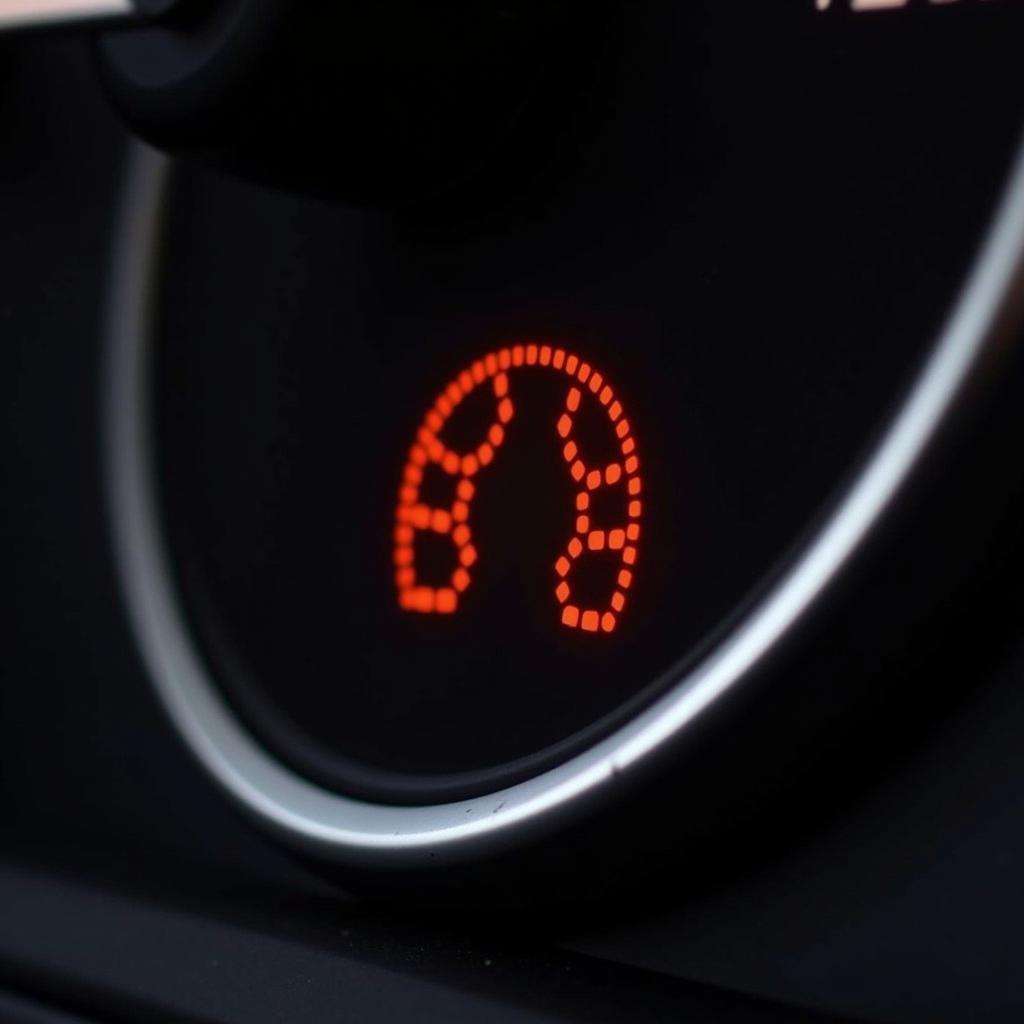 Mercedes GLK Brake Pad Warning Light
Mercedes GLK Brake Pad Warning Light
Importance of Prompt Action
Ignoring a brake pad warning light can lead to serious consequences:
- Reduced Braking Power: Worn brake pads significantly reduce your ability to stop effectively, increasing stopping distances and the risk of accidents.
- Damage to Brake Rotors: Driving with worn pads can damage the brake rotors, leading to costly repairs.
- Brake Failure: In extreme cases, ignoring the warning can result in complete brake failure, putting you and others at serious risk.
Mercedes GLK Brake Pad Replacement
If your brake pads require replacement, it’s crucial to use high-quality pads designed for your specific GLK model. Here’s why:
- Performance: OE (Original Equipment) or OE-equivalent pads ensure optimal braking performance and compatibility with your vehicle’s braking system.
- Safety: High-quality brake pads meet stringent safety standards, providing reliable and predictable braking.
- Longevity: Well-made pads last longer, reducing the frequency of replacements and saving you money in the long run.
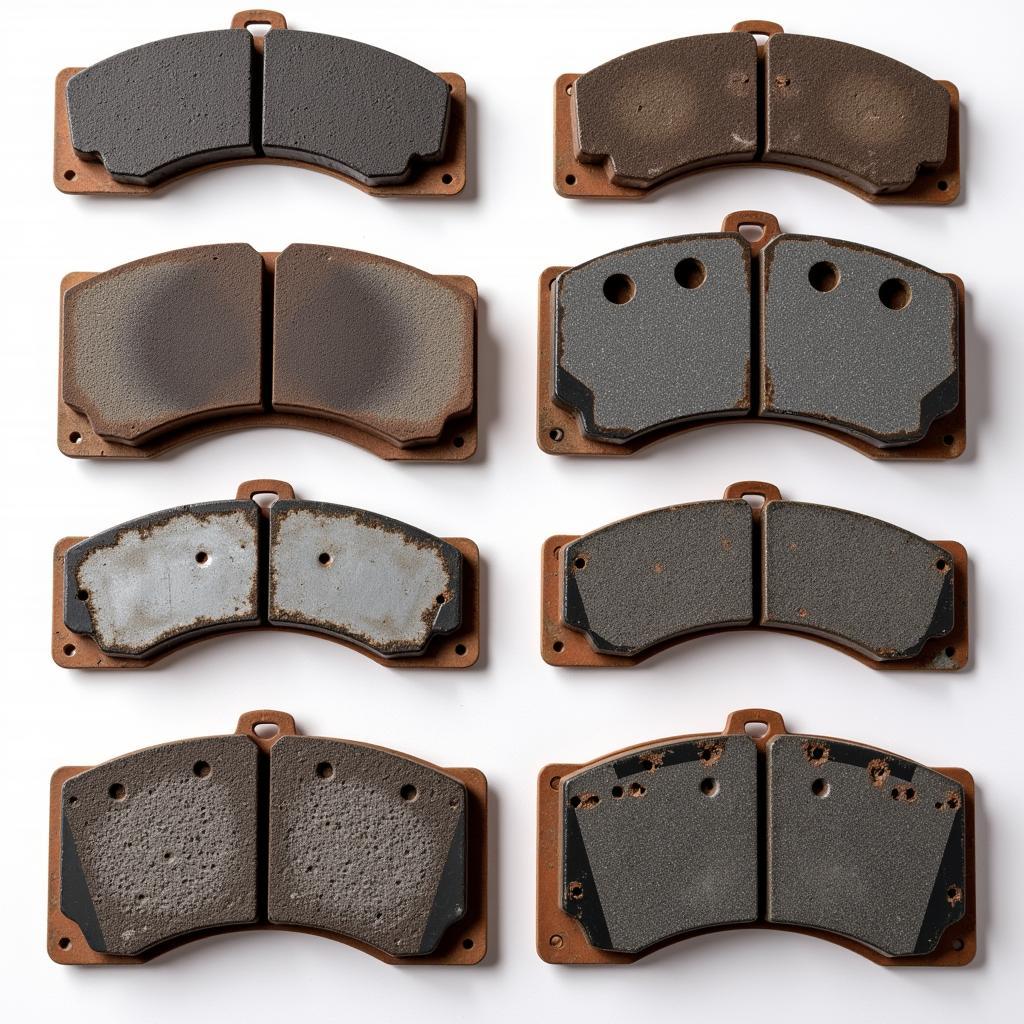 Worn Brake Pads vs. New Brake Pads
Worn Brake Pads vs. New Brake Pads
Remote Diagnosis and Repair Options
In some cases, remote diagnosis and software solutions might be available to diagnose and address certain brake-related issues. These advanced technologies offer convenience and efficiency for specific concerns. For instance, a professional mechanic specializing in remote diagnostics might be able to:
- Analyze Diagnostic Trouble Codes (DTCs): By connecting remotely to your GLK’s onboard computer, a technician can read DTCs related to the brake system, potentially identifying the root cause of the warning light.
- Perform Software Updates: Certain brake system issues might be resolved through software updates, which a remote technician can sometimes install wirelessly.
- Guide Troubleshooting Steps: A remote technician can guide you through basic troubleshooting steps to determine if a physical inspection or further diagnosis at a workshop is necessary.
Expert Insight: “While remote diagnostics offer valuable insights and solutions for some brake-related concerns, it’s crucial to remember that a physical inspection by a qualified technician is often necessary for accurate diagnosis and repair,” says Jake Carter, a seasoned Mercedes-Benz technician with over 15 years of experience.
Conclusion
The brake pad warning light in your Mercedes GLK is a crucial safety feature you should never ignore. Understanding its causes and taking prompt action is essential for maintaining optimal braking performance and ensuring your safety on the road. While simple checks and remote diagnostics can provide initial insights, seeking professional assistance is always recommended for a comprehensive diagnosis and reliable repairs.
Frequently Asked Questions (FAQ)
Q1: Can I drive my Mercedes GLK with the brake pad warning light on?
It’s strongly advised against driving with the brake pad warning light illuminated. Doing so risks severely reduced braking performance and potential damage to other brake components.
Q2: How much does it cost to replace brake pads on a Mercedes GLK?
The cost of brake pad replacement varies depending on factors like your location, the specific GLK model, and whether you choose OE or aftermarket parts. It’s best to contact a reputable mechanic for a personalized quote.
Q3: How often should I replace my Mercedes GLK’s brake pads?
Brake pad lifespan depends heavily on driving habits and conditions. However, it’s generally recommended to have your brake pads inspected every 10,000-12,000 miles and replaced as needed.
Q4: What are the symptoms of worn brake pads?
Common symptoms of worn brake pads include a squealing or grinding noise when braking, a vibrating brake pedal, and a longer stopping distance.
Q5: Can I replace my Mercedes GLK brake pads myself?
If you possess mechanical skills and experience, you can find DIY guides for brake pad replacement. However, it’s generally recommended to have this procedure performed by a qualified mechanic to ensure proper installation and safety.
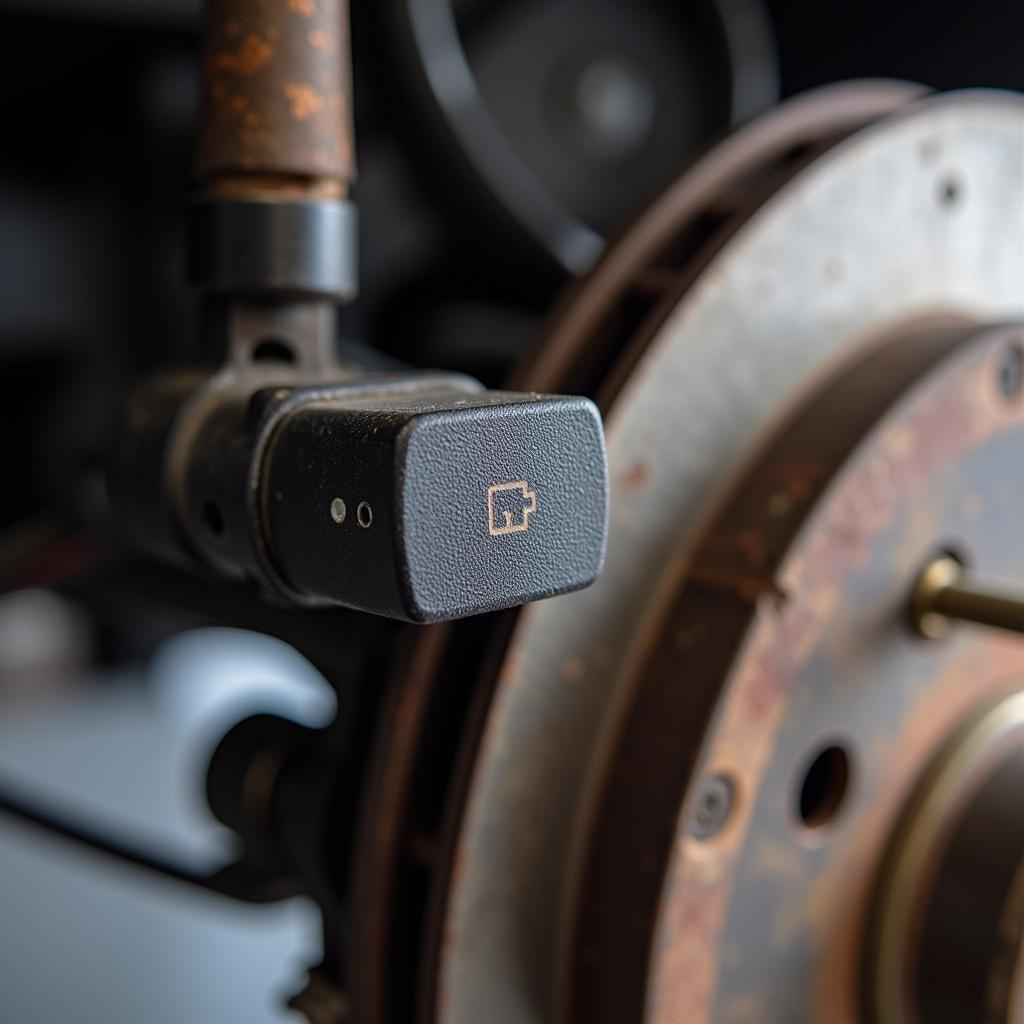 Brake Pad Sensor
Brake Pad Sensor
Remember, your Mercedes GLK’s braking system is critical for your safety and that of others. Don’t hesitate to seek professional assistance to address any concerns or warning lights promptly.

